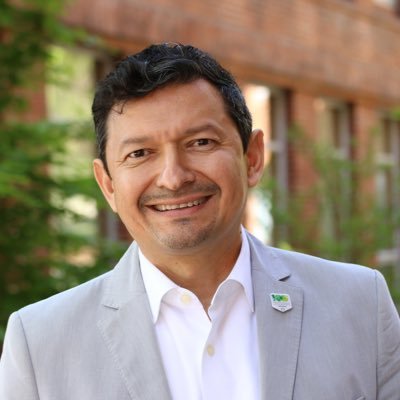
The contributions of IPR to international public relations began long before the organization started sponsoring multinational research or hosting events outside the United States. Many of my colleagues and their students across the world have accessed, used, and distributed contents available on the Institute’s website. Recently, this global outreach has been expanded with the Research Letter and blog posts. Scholars and graduate students worldwide have contributed to the growing body of knowledge archived on the IPR website. This global exchange of knowledge and best practices has placed the Institute on the reference map of aspiring, junior, and senior researchers, as well as concerned professionals.
The international perspective has been transferred in multiple ways. The first Interdisciplinary Public Relations Research Conference was hosted at the University of Maryland in 1998. Currently, the Institute, in conjunction with University of Miami, holds the International Public Relations Research Conference (IPRRC) each year. In 2003, the International Index of Bribery was launched in coordination with the International Public Relations Association. Corporate sponsors made possible the publication of the International PR Case Studies book, edited by Judy Turk and Linda Scanlan in 2007. The increasing presence in emergent markets has progressed too. IPR has been featured as the cover story by the official publication of the China International Public Relations Association.
In 2015, Barcelona Principles 2.0 became the most far-reaching industry collaboration for measuring communications performance. Originally launched by the International Association for Measurement and Evaluation of Communication in 2010, the new framework was developed in conjunction with the founding partners of the project, including IPR, ICCO, PRCA, PRSA, and Global Alliance. The Institute has recognized that the greatest challenges facing the profession can only be tackled with inter-organizational cooperation. We have started to speak the same language when referring to public relations education, practices, and research on a global scale.
The recognition of the expanded impact of academic research that informs the practice has been the target of IPR. In the past five years, four esteemed colleagues from the United Kingdom, Germany, Slovenia, and Netherlands received the Pathfinder Award for original programs of scholarly research: Cees van Riel in 2011, Ansgar Zerfass in 2014, Anne Gregory in 2015, and Dejan Verčič in 2016. This demonstrates the significant growth and impact of public relations scholarship worldwide and how IPR recognizes the contributions across national borders.
Today, the Globalization Committee is further enhancing the international presence of the Institute. In 2016, IPR is hosting Research Symposia in London, Singapore, and Hong Kong, with an emphasis on the IPR-sponsored Organizational Clarity study. This comparative research project was accomplished with the support of corporate sponsors and the participation of 1,500 employees of organizations in Brazil, China, India, United States, and United Kingdom. Moving forward, this type of multinational effort and partnership should become a priority of IPR’s plans. In 2017, IPR will actively participate in the Iberian-American Summit of Strategic Communication (I Cumbre Iberoamericana de Comunicacióm Estratégica, http://cibecom.lat/). The three pillars of the summit are reputation, sustainability, and transparency. As an IPR representative to the summit, I am working closely with professional associations in Spain, Portugal, and Latin America to achieve a significant representation of business leaders and chief communication officers of the region.
In my opinion, IPR has achieved a strong and influential voice in global affairs and developments, contributing much to public relations research and practice. The work has far to go to reach the internationalization goals of IPR. Needed are additional multinational and comparative studies, workshops and symposia in various world locations, with greater availability and access to original online content in main languages at the core of what IPR does. More importantly, the Institute is poised to become the gateway to North America for the ever-expanding and influential scholarship led by inspiring and dedicated world scholars and graduate students, in partnership with concerned and committed professionals and professional organizations.

Juan-Carlos Molleda, Ph.D., is the Edwin L. Artzt Dean of the University of Oregon’s School of Journalism and Communication and an IPR Trustee. Follow him on Twitter @GlobalPRMolleda.



